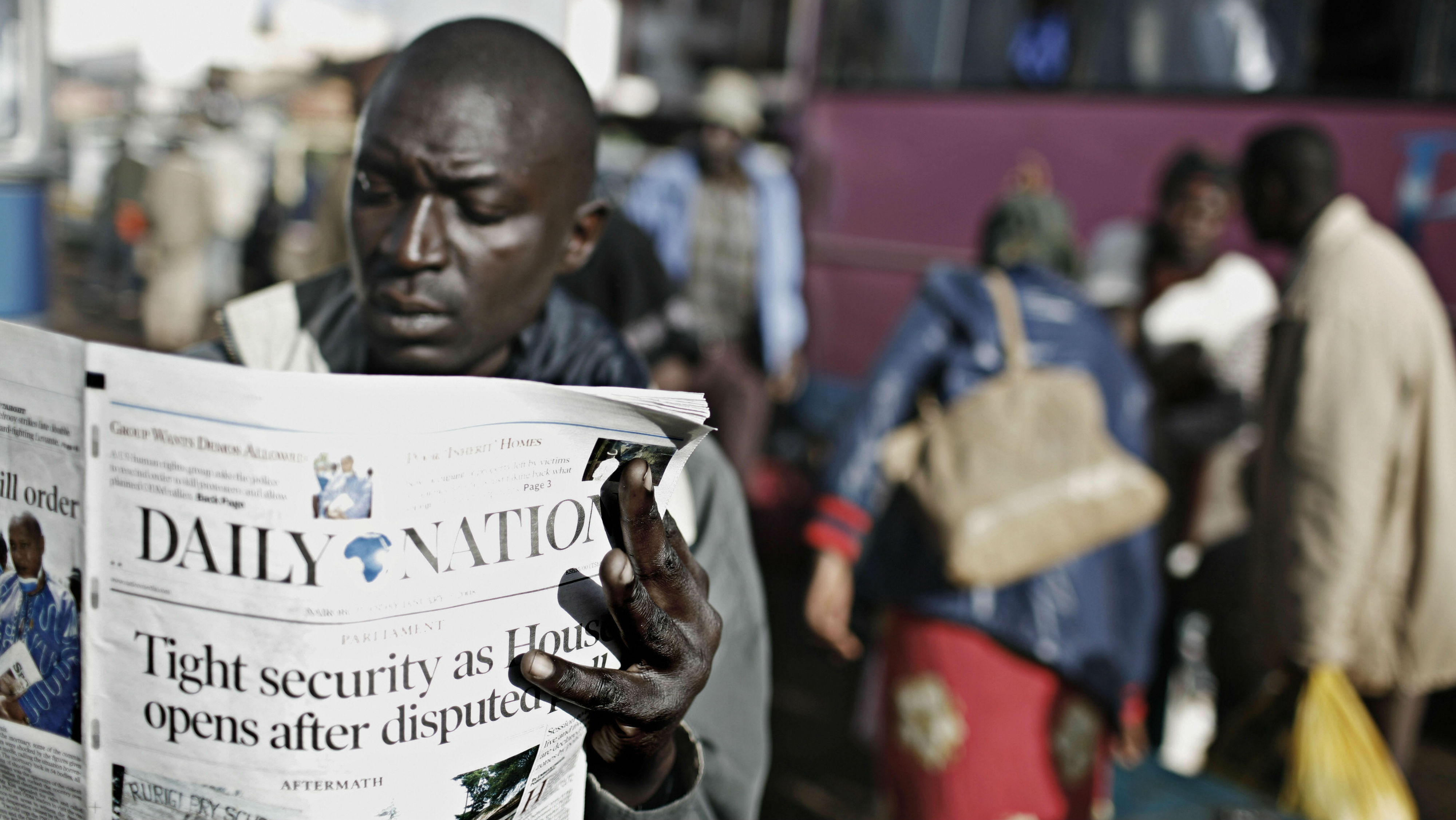Will fake news hit Kenya's presidential election?
Bogus results claiming false polling results could lead to fresh bout of violence

A free daily email with the biggest news stories of the day – and the best features from TheWeek.com
You are now subscribed
Your newsletter sign-up was successful
Fears are growing that fake news could trigger another outbreak of violence in Kenya as the country takes to the polls to vote for the next president.
Peddling political lies is hardly a new phenomenon in Kenya, says Foreign Policy magazine, "but the ante has clearly been upped in recent months, with shameless fearmongering and fake news taking over the internet".
What's been happening?
The Week
Escape your echo chamber. Get the facts behind the news, plus analysis from multiple perspectives.

Sign up for The Week's Free Newsletters
From our morning news briefing to a weekly Good News Newsletter, get the best of The Week delivered directly to your inbox.
From our morning news briefing to a weekly Good News Newsletter, get the best of The Week delivered directly to your inbox.
Bogus news clips that look like reports from CNN and the BBC claim President Uhuru Kenyatta has a strong lead over his rival Raila Odinga. However, polling suggests neither candidate has enough support to win outright and a run-off appears likely.
"People who don't watch CNN or the BBC would not know that these videos were fake," says Alphonce Shiundu of Africa Check, an independent fact-checking organisation.
Kenyan political operatives have also been registering fake news websites to propagate false stories during the election, Quartz Africa reports. "The sites have corresponding names or brand colours matching international media outlets, all in an effort to give their stories added credibility," it adds.
What effect could it have?
A free daily email with the biggest news stories of the day – and the best features from TheWeek.com
"If the result is significantly different to what is anticipated, violence could break out around the perception that the election has been rigged," says the Africa Report.
A disputed result in 2007 led to two months of ethnic clashes and more than 1,000 deaths. One election official has already been killed ahead of this year's vote.
Fake news reports have been widely shared on social media - a recent poll found 90 per cent of Kenyans had seen them.
Kenya is "among the ripest countries in Africa" for a successful fake news campaign, says Foreign Policy. "Distrust runs deep in a society scarred by successive bouts of post-election violence." Kenya also "has one of the highest rates of internet penetration in Africa," providing the ideal conditions for "fake news to sway the electorate".
What's being done about it?
Facebook and Google have been widely criticised for facilitating the spread of fake news, but the social media giants are taking steps to curb the number of false articles spread across their sites.
"Google is working with fact-checking organisations to review online content, and to pull down from their search results websites reported to be spreading misleading or inaccurate stories," says Quartz.
Last week, Facebook rolled out a new tool to help Kenyans spot bogus reports and took out full-page ads in national newspapers as part of a campaign to educate the electorate about fake news.
On a government level, a team of social media monitors are working alongside the national police's cyber-crimes unit to combat fake news that could incite violence, says the Africa Report.
But a lot of false reports are being disseminated on "dark" social media platforms and are therefore difficult to monitor, says Africa Check's Alphonce Shiundu in an interview with CNN.
"That means it's coming from Telegram or WhatsApp groups that are not easily traceable and not quickly debunked," he says. "So you get people - even politicians - making wrong decisions based on unverified information."